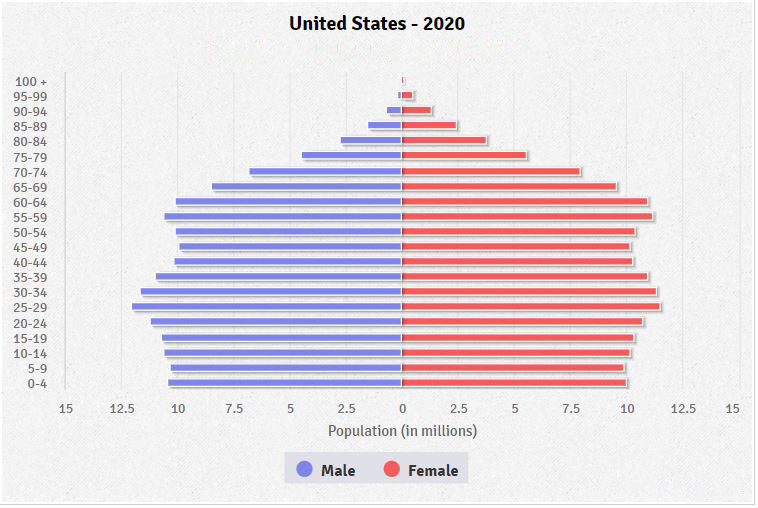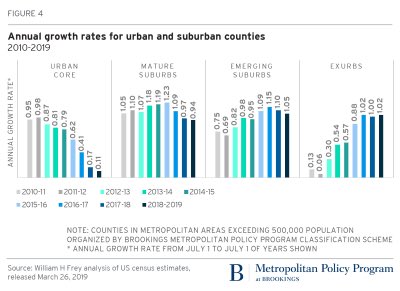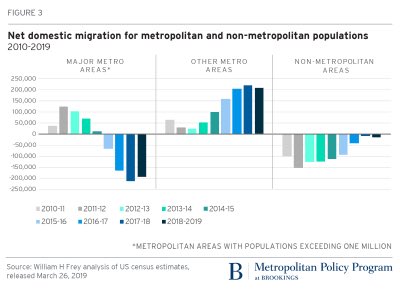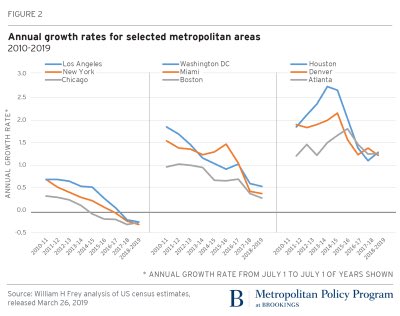A thread on the interlinked debates around migration from gateway cities and its potential consequences.
This is highly uncertain and reflects my thoughts as of today, which can (and do) change on a daily basis. 1/x
This is highly uncertain and reflects my thoughts as of today, which can (and do) change on a daily basis. 1/x
As far as I can tell there are three debates, often being confused, included in the (emotionally and politically charged) question: ‘Is it over for NYC and SF?’
1) From cities to suburbs
2) From the coasts to the Sun Belt
3) From Tier 1 cities to Tier 2
2/x
1) From cities to suburbs
2) From the coasts to the Sun Belt
3) From Tier 1 cities to Tier 2
2/x
1) Migration from the cities to the suburbs isn’t new. It’s happened for years, and happens as young people start forming families and need more space.
The large millennial generation is naturally aging... 3/x
The large millennial generation is naturally aging... 3/x
And the trend was already underway. Did COVID convince some families to make a move they wouldn’t have done in the past? Possibly. More likely though, it accelerated a move that was likely to happen anyway. 4/x
Cities are meant for younger people, and as long as there are 23 year-olds the people leaving will be replaced. Per @EllliotttB 5/x https://twitter.com/ellliotttb/status/1337075732623724545
2) From the coasts to the Sun Belt. Again, not a new trend. Jobs and population growth in the Sun Belt has long exceeded the coasts due to business-friendliness and cost of living. 6/x
Could this trend accelerate as a result of COVID? As companies realize remote work is an option there could certainly be a step change. However, this is not necessarily transformative... unlike the next, related but distinct debate. Threat level: medium. 7/x
3) Do Tier 2 cities take market share from NYC, SF and other Tier 1 cities? This is not just about the existing long-term trend, but whether the superstar cities lose their grip on the financial and cultural elites. 8/x
(This is not meant as a judgment either way; the high-achievers with high-paying jobs are those cities’ bread and butter and where for years they have enjoyed a monopoly) 9/x
Historically those cities advantages have rested on a) career opportunities (high-paying jobs, talent/company ecosystem) and b) cultural and leisure amenities (events, entertainment, art) 10/x
This is where the picture becomes concerning with the recent corporate announcements around Austin and Miami. You could over time see those ecosystems develop there and this appears to be underway. 11/x
Culture-wise, there won’t be another Broadway, or LA entertainment and art scene; but Austin and Miami have made great strides. If you’re a 23 yr-old Ivy League grad with a job offer at GS, would you think twice about a Miami office ten years ago? Most definitely not... 12/x
... but today, as an international metropolis with museums and interesting things to do (and increasingly others, similar people, making the move) you would seriously consider it. 13/x
If there is no longer just one tech ecosystem, and no longer just one financial services ecosystem, the picture for SF and NYC can change dramatically. This is where COVID may have the most transformational impact. Threat level: high 14/x
So where does that leave us? In almost every scenario, in a bad place for NY and SF office. Even if people don’t move, hard to imagine large companies investing too much in space there. And the deranged tax rules in NY around sourced income may require satellite offices 15/x
Sun Belt office is a question mark. Better demand trends, but entirely supply unconstrained. 16/x
On the residential side, there will be new 23-year olds looking to make it in NYC. And Broadway/the Met are not going anywhere. If anything, low rents will bring back the creatives and artists who were increasingly priced out of the city. 17/x
I realize it is odd to argue a bull case based on lower rents; but once the reset has occurred, NYC and LA will likely be fine. SF is less diversified and therefore more concerning. 18/x
A lot is riding on political leadership, perception of safety and general quality of life. Not an easy bet to make. Another problem is that it doesn’t take many GS partners and Google execs to move to affect the tax base of the top cities.
Raise tax and worsen the issue? 19/x
Raise tax and worsen the issue? 19/x
In conclusion, I wouldn’t worry as much about migration to the suburbs or the Sun Belt as much as superstar cities losing some of their scarcity and network effects.
NY and SF have benefited for decades from the lack of serious alternative, leading to complacency... 20/x
NY and SF have benefited for decades from the lack of serious alternative, leading to complacency... 20/x
... while the next tier of cities have made real headway. Time will tell but this is the item to watch. 21/21

 Read on Twitter
Read on Twitter





